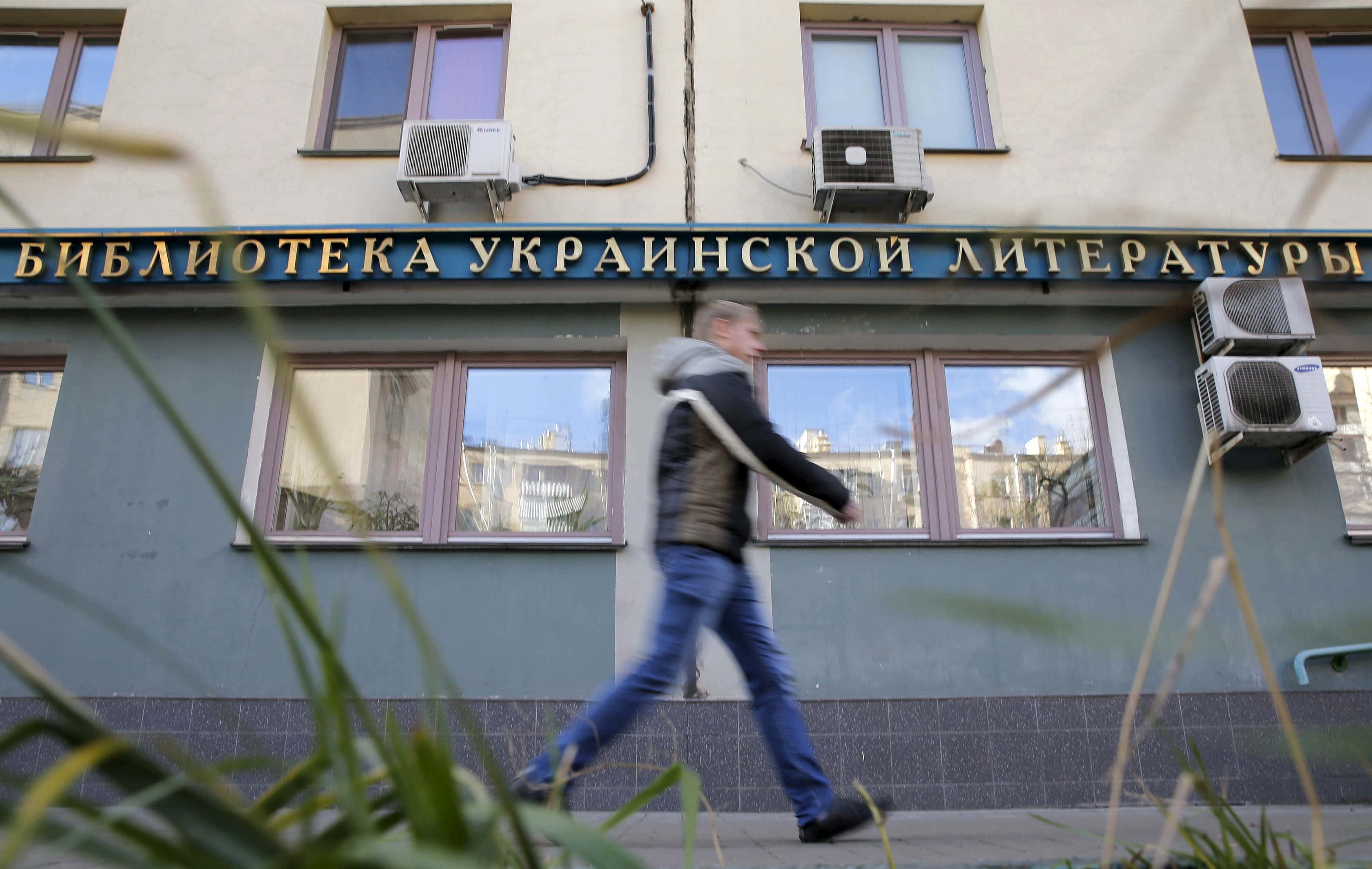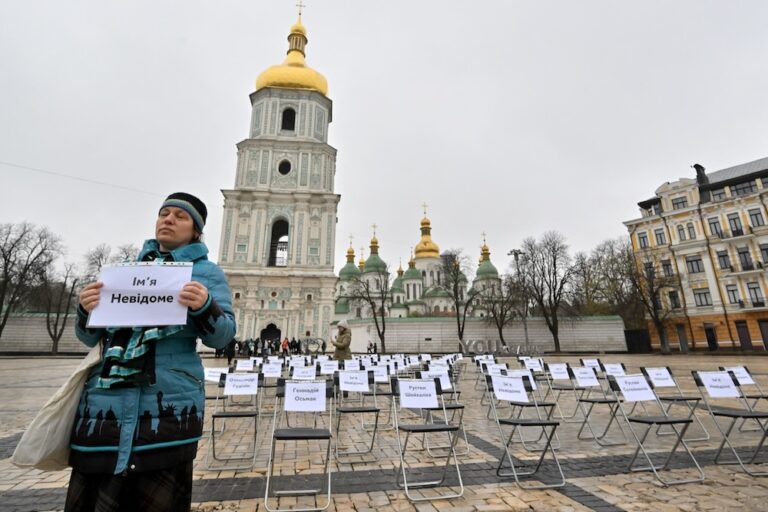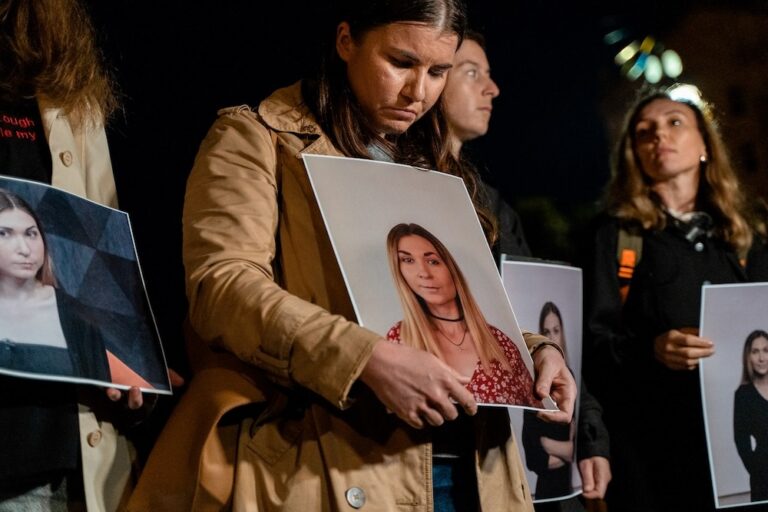Russian authorities have detained the director of the Moscow Library of Ukrainian Literature, apparently alleging that some of the library’s materials are meant to “incite hatred” toward the Russian people.
This statement was originally published on hrw.org on 30 October 2015.
UPDATE: Late at night on October 30, a court in Moscow ruled to have the library director, Natalia Sharina, put under house arrest pending trial.
Russian authorities have detained the director of the Moscow Library of Ukrainian Literature, apparently alleging that some of the library’s materials are meant to “incite hatred” toward the Russian people, Human Rights Watch said today. On October 28, 2015, law enforcement officials took into custody Natalia Sharina, 58, the library director, and searched her apartment, raided the library, and seized books and documents.
Detaining Sharina over the content of library materials violates her right to “impart information and ideas of all kinds,” protected under the International Covenant on Civil and Political Rights, Human Rights Watch said. She should be immediately and unconditionally released. If she were convicted of abusing her office to incite hatred, she would face up to five years in prison.
“The detention of a librarian for the materials in her possession is not only an assault on personal liberty, but on every person who cares about ideas and learning and education,” said Hugh Williamson, Europe and Central Asia director at Human Rights Watch. “The Russian government is sending a crude message that the books on your bookshelves could land you in prison, a disturbing throwback to Soviet times.”
A member of Moscow’s public prison monitoring board who interviewed Sharina in custody told Human Rights Watch that officials searched her apartment at 7:30 a.m. At 9:30 a.m., investigative officials took her to the library, where a search had already been going on for an hour. During the more than 12-hour search, officials found some books they claimed were banned in Russia as “extremist.”
Russia’s anti-extremism legislation bans “mass dissemination” of materials that the government designates “extremist.” This places library employees at a particularly high risk of being charged. An official list of extremist materials currently includes more than 3,000 titles and has been extensively used by Russian authorities to pressure independent groups, including Mejlis, the body representing Crimean Tatars in Russia-occupied Crimea.
Following the library search, the authorities took Sharina to the Tagansky district investigation agency and questioned her there until midnight. A government-appointed lawyer then arrived, and the investigator told Sharina that she was being detained on suspicion of abuse of office to incite hatred between Russians and Ukrainians. Sharina became ill upon hearing this news. Emergency medics arrived at about 1:15 a.m. and diagnosed Sharina as having a hypertonic collapse, with dangerously high blood pressure. They gave her blood pressure medications and told the investigator that she should be hospitalized for the next 24 hours.
According to Sharina, the investigator told the medics he would arrange for Sharina’s transfer to a prison hospital. Instead, at about 3 a.m., law enforcement officials took Sharina to a police precinct, where she spent the rest of the night with no sleeping facilities and no access to medical aid.
Russian authorities compounded Sharina’s wrongful detention by putting her health at risk, Human Rights Watch said.
In the afternoon of October 29, police interrogated Sharina in the presence of a criminal lawyer hired by her family. Later that evening, police officials transferred Sharina to a temporary detention center in central Moscow.
The Ukrainian government sent an official protest to the Russian authorities in connection with the search in Moscow’s Library of Ukrainian Literature, describing the actions of Russian law enforcement as “ruthless and unmotivated.” The head of the Russian President’s Human Rights Council, Mikhail Fedotov, said that the council was following the case closely and, highlighting the absurdity of the case, said it was getting ready to deal with “a series of arrests of Ukrainian restaurants’ chefs” in the near future.
Russian media also reported a broader campaign of censorship of library material. The director of Moscow’s First Popular Scientific Library was quoted in news reports as saying that on October 29, the Central Librarian Directorate instructed the library to remove from public display a prominent 2007 academic study by Professor Sergei Abashin, Nationalist Movements in Central Asia – In Search of Identity.
A Moscow schoolteacher told Human Rights Watch that in recent days, the school’s principal ordered the school librarian to review their materials and remove from shelves all “politically sensitive” items as a precaution.
Russia should stop putting pressure on libraries and undermining freedom of information under the guise of fighting extremism, Human Rights Watch said.
“It’s a vicious circle since as a librarian, your primary duty is to safeguard the collection and give readers access to a plethora of views and interpretations, but that places you at greater risk of arrest under the anti-extremism law,” Williamson said.



